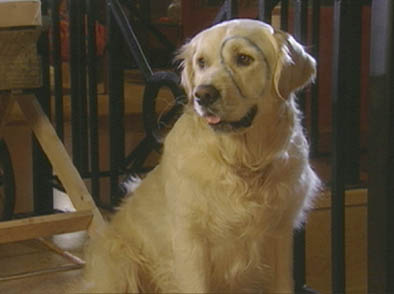 Bob woke up in a white room, to the gentle prodding of a man in a white coat. There was a family in the room, a girl, a boy and their father, and they were talking in concerned voices.
Bob woke up in a white room, to the gentle prodding of a man in a white coat. There was a family in the room, a girl, a boy and their father, and they were talking in concerned voices.
The man was complaining that his children had missed half a day of school and promised that they could check up in the dog after school was out.
“But, daddy,” cried the girl. “Paul and I are just as worried about him as you are. We won’t do anything at school anyway. We’ll be too busy thinking about the dog.” She smelled like sugar and stale cookies. Her father smelled of coffee, and her brother smelled of baby shampoo.
The man smiled reluctantly and agreed to let the kids stay.
They took Bob home later that afternoon.
They put an ad in the paper, but no one responded. So, after plenty of whining from both Patsy and Bob, he was allowed to stay.
Patsy named him: Bob. After her favourite uncle.
Neither Paul, Patsy, nor their big sister Penny, took Bob to school with them. Still, he got plenty of attention from the family of five, and from the neighbourhood children, who were quite content to nurse Bob while he limped around an a cast and a lampshade.
He had never had time alone except for sleep-time, and his new free days were excitingly filled with digging, sniffing, eating grass, opening and closing doors with his nose and paws, and (his favourite) redecorating the house, by reorganising small items such as shoes and schoolbooks.
Paul and Patsy played the trust game with Bob, but the rules were different. They would talk to him using hand-signals much different from those he had learned from Larry, and (best of all) they would wrap their little arms around him and hug him until he collapsed on the ground.
Bob didn’t forget about June, but he forgot his desire to find her. She had given him away, and Bob felt that she must still be as happy as she was when last they played.
So Bob settled into his new life, smock-free, and he paid special attention to his new family, helping as best he could to raise the children, teach them to stop at red lights and wait for cars to pass before wandering into the street.
He learned to nuzzle Paul when he drifted into his own private world, and to lick Patsy after she threw a tantrum. He could tell who was going to walk into the house by the sound of their keys in the lock, and he could guess which days of the week his family would go out, and which days they would choose to stay home.
He was a part of the family and knew each member inside out, from what clothes were their favourite, to the ways that they smelled in different moods.
So when Penny began to smell in a way she had never smelled before–a crisp, acrid smell like vomit and something else–Bob was suspicious. He whined and pawed about the house, trying to catch someone’s attention to investigate, but they would only scratch his head absentmindedly, or hold out their palm for him to lick.
By the time they piled in the car for their familiar trip to Nemes, Penny’s father was carrying the same smell, faintly, so that it was almost fragrant on his breath and skin.
The smell discomfited Bob, making him run nervously from room to room, scratch at the door to be let out, and then scratch again to be let back in.
He tried to clean Penny, to lick the smell from her skin, but he couldn’t stand the new taste of her sweat.
As Penny’s skin broke out in a rash, the smell erupted from her, like the smell of a flower screaming outward as it blossomed.
Soon, only Paul and Patsy smelled like home.
As Penny and her father piled into the car to leave Nemes, Bob raced behind, trying to bark his warning.

